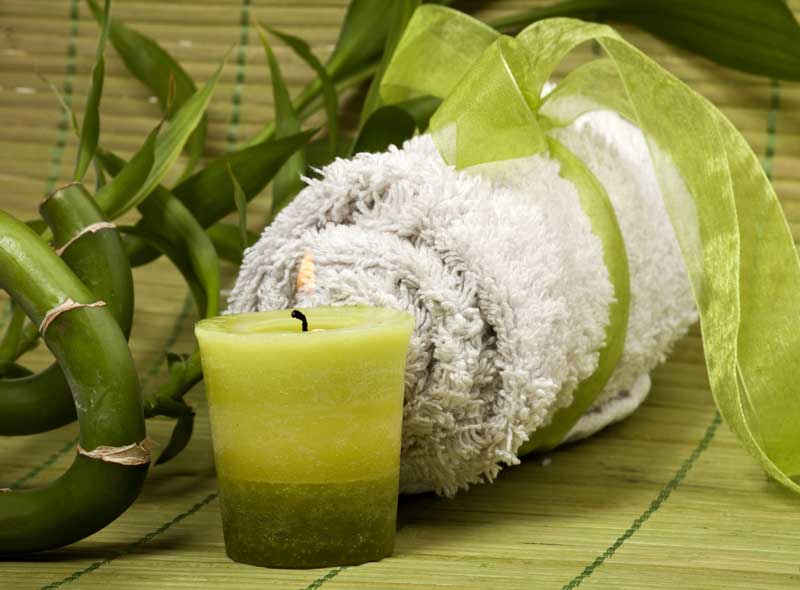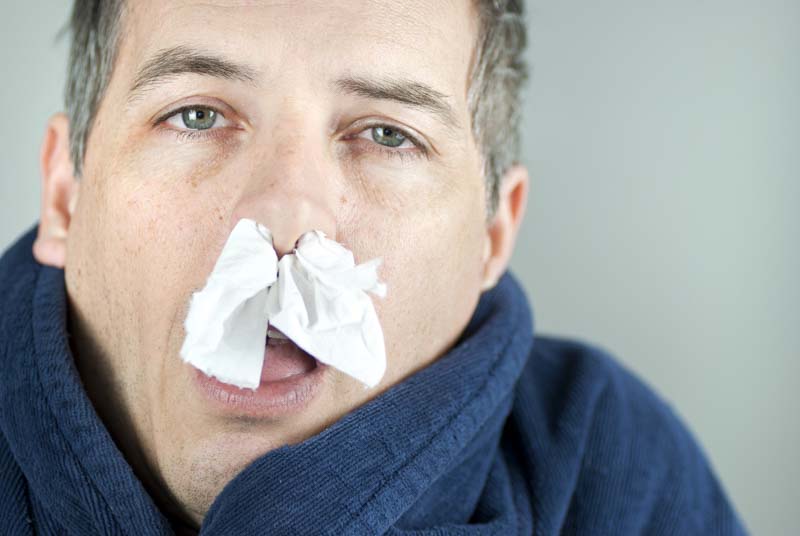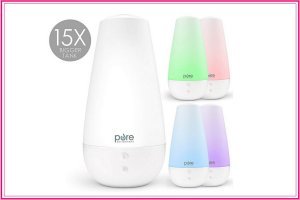
Thyme Essential Oil: the courage giver and wound cleaner.
Thyme is a commonly used herb in the kitchen; however, there are so many more uses for this tiny evergreen shrub. It has a rich history dating all the way back to ancient Egyptian times, when it was used for embalming and for a variety of health purposes. Now thyme is used not only in culinary dishes but as a powerful and useful essential oil.
Origins of Thyme
Thyme is a small perennial shrub. It grows up to 18 inches in height or 45 centimeters having a strong woody root system with a multi-branched stem. The leaves of the thyme shrub are greenish-grey in color and have small elliptical-like shaped leaves. The flowers are pink or purple in color.
Thyme’s botanical name is thymus vulgaris and is a part of the mint family. Grown throughout the world thyme essential oil is produced mainly in Europe in France, Spain and Morocco. The thyme plant is native to the western Mediterranean, focusing mainly in southern Italian and southern European regions with light chalky soil.
The word thyme comes from the Greek word thymos which mean perfume. The thyme plant is very fragrant which makes sense for this naming. It may have also come from the Greek word thymon which means courage because many of the traditional uses for thyme by the Greeks were associated with this quality. It is also known as “mother thyme” because of the many medicinal uses for women and female disorders.
Thyme was used in ancient Egyptian times for embalming because of its high thymol content which helps to kill off bacteria and fungus.
The Greeks and the Romans both have a rich history with thyme. For the Greeks thyme was a symbol of elegance and was used during or after bathing for it aromatic fragrance and medicinal powers. For Romans it symbolized vigor so soldiers bathed in to give them this quality and power or would exchange sprigs of it with each other as a symbol of respect.
The Greeks and the Romans also used thyme to purify their homes and ceremonious places such as temples. This was done by burning thyme in the building needing purification. Thyme for these two cultures symbolized courage, bravery and strength.
Starting in the Middle Ages thyme was used to help promote a restful night’s sleep but also began to be used more and more in food and drink. It was added to beer to help those who drank it to overcome shyness.
Once again the strength and courage of this herb was used in teas for soldiers helping to protect them in battle and give them strength and courage in battle. Judges and nobility carried around sprigs of thyme to protect them from disease and also used as a deodorant.
Thyme was actually the very first herb to be listed in the book Holy Herb Charm. This just goes to show how very important thyme was and still is today because of its many uses and health benefits.
Poets and writers all over the world have been inspired by thyme. Writing about its powerful fragrance and how intoxicating it can be.
Many herbalists and botanists have written about the many health benefits thyme possesses. From helping to cure whooping cough and vomiting to hangovers and headaches thyme has been used for thousands of years and will be used, probably, for a thousand more.
Heck during World War II thyme was used to clean out wounds due to its high antiseptic properties. It was also widely used in hospitals and the like to clean and help speed up the recovery of sick patients.
The Many Health Benefits of Thyme Essential Oil
Thyme has a wide variety of health benefits and uses that have been utilized consistently throughout history. The ancient Egyptians used thyme in the embalming process while the Greeks and Romans used it in ceremony and for purification during the Middle Ages. It was used to help heal those who were sick and to help others ward of said diseases.
Thyme is high in thymol which is gives thyme its powerful antiseptic properties. This is what makes it so great in wound cleaning and warding off of disease and infection. It is commonly used in mouthwashes, antifungal creams and hand sanitizers.
Thyme is also a great deodorizer and has been known to help with anxiety and sleep problems such as insomnia. It also helps to boost the immune and respiratory systems and help regulate and heal the digestive system. It can also help to increase blood flow and circulation which is important for wounds, sore muscles and injury.
The health benefits and uses of thyme seem near endless. This is a great essential oil to have in your home kit, not to mention the herb alone is great to put in your food!
18 Uses for Thyme Essential Oil

Thyme as an essential oil has many uses that are very beneficial for one’s health. It can also be used or administered in a variety of ways. Here are some of the many health benefits that thyme has.
Antibacterial: Thyme essential oil has antibacterial properties that are very important when it comes to healing wounds or ridding the body of infection. These antibacterial properties help to clean out wounds, help to clean out infection from the wound and help to prevent future infections from taking hold. It also helps to rid the body of internal infections as well; helping to get rid of infections in the digestive or respiratory systems.
Anti-inflammatory: Thyme essential oil has anti-inflammatory properties which are helpful in wound care. It helps to decrease the inflammation surrounding the wound, which allows proper blood flow to reach the wound site to begin cleaning and healing it. Its natural diuretic properties also help to rid the body of unwanted toxins that may be plaguing the area as well.
Related: 22 EOs for Inflammation
Antioxidant: Thyme essential oil is a natural diuretic. This property helps thyme to rid the body of unwanted toxins and salts that may be present in the body and/or blood. By increasing urination it helps to rid the body of these unwanted toxins that may be plaguing the body and its systems. This can also help a person to lose weight, reduce blood pressure and fats and may help to improve the overall health and function of the digestive system.
Antiseptic: Thyme essential oil is high in thymol which is a natural antiseptic. This antiseptic property makes thyme perfect for cleaning the body both inside and out. It helps to disinfect the wounds thus helping to prevent infection and disease.
Circulatory System: Thyme essential oil helps the circulatory system in a number of ways. It helps to increase blood pressure due to its hypertensive properties. It also helps to reduce cholesterol levels by reducing the bad cholesterol and increasing the good cholesterol in the system and blood. It also helps with heart health because of its antispasmodic properties, helping to calm and relax blood flow thus helping to reduce blood pressure and stress on the heart. All of this together helps to regulate the flow of blood and circulate throughout the body with more ease because there are no obstructions impeding it.
Cold and Flu Aide: Thyme essential oil is great when it comes to helping with colds and flus due to it’s antiseptic and antibacterial properties. It helps to boost the immune system as well as helping to expel any build-up in the respiratory system thus helping to speed up the recovery time when having a cold or flu. It also helps with sore throats by not only helping to soothe the sore throat but also helping to get rid of any infection present that may be causing the sore throat. Simply gargling some thyme essential oil in some water will help reduce and relieve the sore throat.
Related: 5 EO Remedies for Nausea / Vomiting / Upset Stomach
Digestive System: Thyme essential oil is very important in the care and function of the digestive system. Thyme helps to reduce bloating and gas build-up in the digestive system this helping to calm the stomach and reducing cramping. It also helps to remove unwanted toxins and infections that may be plaguing the digestive system, such as bacteria or food poisoning. It helps to regulate the digestive system promoting better flow through the digestive tract because of the stimulant properties it also has.
Headache Aide: Thyme essential oil is helpful when it comes to reducing headaches. By helping to reducing inflammation in the body and obstructions in the blood flow thyme is thus able to help reduce headache pain and pressure. Thyme also helps to relax the mind and the body which also helps in reduce the pain and pressure associated with headaches.
Related: 7 EOs for Headaches & Migraines
Immune System: Thyme essential oil helps to boost the immune system. It helps to rid the body of unwanted infection, bacteria and toxins thus helping to boost that immune system. It helps to also ward off disease that may be present as well allowing it to not take hold in the body.
Joints and Muscles Aide: Thyme essential oil helps joints and muscles in a couple of ways. It helps to reduce inflammation throughout the body thus making it easier to move and also by reducing inflammation it helps to reduce the pain that may be present in the affected area. It also helps to remove unwanted toxins from the body. These toxins may be building up in an affected area causing joint or muscle pain and stiffness, but by reducing and eliminating these toxins ease of mobility and pain will soon ensue.
Related: 9 EOs for Sore Muscles / Muscle Pain
Mood Support Aide: Thyme essential oil has been known to help boost ones mood and decrease stress and anxiety levels in individuals. It helps to boost the dopamine and serotonin levels thus helping to elevate the mood which therefore helps to decrease stress and anxiety levels as well. This also helps to boost the memory or cognitive function of a person because they are more easily able to focus and function when stress, anxiety and low moods are not present.
Related: 5 EO Blends for Focus & Concentration
Pest Control: Thyme essential oil is great at reducing bugs. It’s very fragrant aroma helps to repel bugs, including mosquitos, fleas, flies and beetles. It also helps to get rid of internal pests from the body, such as round or tapes worms. It’s antibacterial and antiseptic properties help to kill the parasite and then help to get rid of it from the body via its diuretic properties.
PMS Aide: Thyme essential oil helps to relieve many of the symptoms commonly associated with a woman’s time of the month. It helps to regulate menstruation as well as helping to relieve cramping and bloating that’s commonly associated with PMS. It also helps to reduce nausea, mood swings and fatigue as well. By helping to stimulate the estrogen hormone thyme reduces many of the PMS symptoms that many women suffer from. Thyme is also known to help delay the onset of menopause in many women.
Related: EO Remedies for PMS & Menstrual Cramps
Respiratory System: Thyme essential oil is also supportive of the respiratory system. It helps calm coughs with its antispasmodic properties, allowing a person to rest and begin healing. Its antiseptic properties, as well as antibacterial properties, help to rid the respiratory system of any unwanted infections while also preventing future infections from taking hold. Its antioxidant properties help to rid the respiratory system of unwanted toxins that may be plaguing it and preventing healing of the system. It also has expectorant properties which help express or expel unwanted phlegm and mucus build-up in the lungs or sinuses due to a cold or flu. Thyme essential oil has been known to help get rid of coughs as well as infections in the chest or lungs.
Related: How to Safely Inhale Essential Oils
Skin Care: Thyme essential oil is great for the skin. It is great at helping to reduce the look of scars on the body. It also helps with dark spots of the skin that may be present from wounds, aging or a skin ailment.
Related: 5 EO Recipes for Dry, Cracked & Flaky Skin
Sleep Aide: Thyme essential oil, though it may be a stimulant, it’s also a relaxant. It helps to relax the mind and the body thus allowing a person to calm down enough to get to sleep. It also helps to promote a restful and full night’s sleep.
Related: 17 EOs for improved sleep
Stimulant: Thyme essential oil is a great stimulant for the body and its many systems. It helps to stimulate blood flow and circulation which helps to stimulate the other systems within the body to run more smoothly, thus helping to stimulate the body’s metabolism. This is important in not only helping the body to run more smoothly but also in ridding the body of unwanted toxins, infection or bacteria.
Wound Care: Thyme essential oil is perfect when it comes to wound care. It’s antiseptic and antibacterial properties help to clean out wounds, speed up healing time and also prevent infections. Not to mention thyme helps to stimulate and promote blood flow and circulation to the wound site, helping to heal the wound faster and reducing any scarring that may occur.
Related: 5 DIY Remedies for Bruises
DIY Recipes for Thyme Essential Oil

Thyme essential oil has been used in many different ways and with broad variation. There are plenty of ways to reap its many health benefits. Not to mention it tastes great in many culinary dishes. Have fun and experiment with your own recipes!
Antibacterial Tonic
Ingredients:
- 1 drop thyme EO
- 1 drop oregano EO
- 1 drop ginger EO
- 1 drop peppermint EO
- 1 drop grapefruit EO
- 1 drop cinnamon EO
- ½ cup water
Instructions:
- In a dark glass bottle combine all of the above ingredients together.
- Mix well.
- Drink and let the antibacterial properties work their magic!
- Be sure you are using and consuming essential oils that can be taking orally.
DIY Bug Spray
Ingredients:
- 40 drops thyme EO
- ½ cup witch hazel
- ½ cup apple cider vinegar
Instructions:
- In a glass spray bottle combine all of the above ingredients together.
- Mix well.
- Spray on the body as needed or in the air to ward of those pesky bugs.
Hormone Balance Tonic
Ingredients:
- 30 drops thyme EO
- 30 drops clary sage EO
- 30 drops ylang ylang EO
- 1 oz. evening primrose oil
Instructions:
- In a dark glass bottle combine all of the above ingredients together.
- Mix well.
- Using a dropper drop 5 drops onto the neck twice daily and massage in.
Blemish Aide
Ingredients:
- 8-10 drops thyme EO
- 2 oz. witch hazel
Instructions:
- In a small squirt bottle combine the above ingredients together.
- Mix well.
- Squeeze out a few drops onto a cotton pad and apply directly to the blemish or affected area of skin.
- Allow to dry
- Apply as needed.
Fluid Replacement Tonic
Ingredients:
- 1 cinnamon stick
- 2 cloves
- 2 thyme sprigs – fresh or 3 pinches of dried thyme
- 2 pints or 1 liter of water
Instructions:
- In a saucepan combine all of the above ingredients together.
- Allow to boil for at least 2 minutes. This will allow the ingredients to infuse together.
- Remove from the heat and cover with a clean cloth and allow to sit and infuse more for at least 5 minutes.
- Strain into a glass container.
- Drink throughout the day.
- Store in the fridge for no longer than 2 days.
Additional Uses and Applications of Thyme Essential Oil

Here are a few other ideas for utilizing thyme essential oil.
- Add a couple of drops to your bath water to help relieve the symptoms of fatigue.
- To improve your sleep add a couple drops to your diffuse and diffuse into the air prior to bedtime.
- Use as a mouthwash by adding a couple drops to a cup of warm water and gargling.
- To help reduce the appearance of scars add some thyme essential oil to a carrier oil and massage into the skin.
- To improve your mood inhale some thyme essential oil or diffuse it into the air.
- Add a couple drops to your face wash to improve the cleansing of your skin.
- Add a couple drops to hot water and inhale to help improve respiratory health.
- To help reduce pain add 3 drops of thyme essential oil to 2 teaspoons of sesame oil and massage into the affected area of pain.
- Rub thyme essential oil into the chest to help relieve respiratory infections.
- Make a douche out of it to help cure vaginal yeast infections.
- Drink a cup of thyme tea to help with internal problems such as IBS, food poisoning or infection.
- Put your culinary visions to work and create a dish using fresh thyme.
- Try making a baking soda homemade toothpaste. This will not only clean your teeth but help with bad breath.
- Try out making a DIY homemade shampoo. It will help to clean the hair and smells great!
Side Effects and Cautions of Thyme Essential Oil
Thyme essential oil is a relatively safe essential oil to use and consume. Of course it is important to always do your research on the essential oil prior to consumption or use to ensure it is safe for you to use.
Caution should always be used around women who are pregnant, about to become pregnant or breastfeeding as essential oils, including thyme, could cause complications.
Be sure to check your allergies. If you are allergic to mint you may not be able to thyme essential oil as it is a part of the mint family. Always test it on a small patch of skin prior to full use.
Women who are hormone sensitive should use caution when using thyme essential oil as it may increase estrogen levels in the body and could cause further complications for you.
If you have a blood clotting disorder use caution when using thyme essential oil as it could decrease the blood clotting process in the body and cause excess bleeding. Avoid for at least 2 weeks prior to and after any major or minor surgeries.
When using thyme EO caution should always be used around children and pets. Children are highly sensitive and may have allergic reactions when exposed to essential oils. Pets, on the other hand, may not be able to handle or digest essential oils at all, namely cats. Please use caution around these sensitive beings.
Purchasing Thyme Essential Oil

It is important to know what you are looking for when you go to purchase your thyme essential oil. Do your research prior to purchase. You not only want to ensure you are purchasing from a reputable distributor and/or company, but you also want to ensure you are purchasing a quality produce with all the health benefits you desire.
Consider reearching where the thyme is grown and how it is grown; organically grown is optimal. You also want to ensure they harvest the thyme at the correct time of the year during the correct conditions.
Consider reesearching the distillation process. You want to ensure they are using steam distillation of the thyme plant to extract the essential oils from the leaves. Also research how many times the essential oil is distilled. If you are wanting pure or true essential oil be sure you are getting that, in other words, you want the first distillation not the third or fourth distillation.
Read the ingredients. You want to ensure you are purchasing only thyme essential oil and not thyme essential oil with other essential oils added, unless you are looking for a tonic, or other carrier oils added.
Always do you research to ensure you are getting a quality product and they product that you desire and are seeking for the uses you want.
Making Thyme Essential Oil
Thyme essential oil is made through the process of steam distillation. The leaves of the thyme plant should be fresh or partially dried when they go through the process and the oil is extract from the leaves. This process can be time consuming but it can be done at home it you have the time and the right tools to do so.
The essential oil, when extracted, is a red, brown or orange color. It has a very strong smell that is spicy in its flavoring. However, the further the thyme is distilled through the steam distillation process the lighter in color and scent it becomes. Further distillation produced a clear or pale yellow liquid that has a mild, though still with spicy notes, fragrance.
Conclusion

That concludes this post on thyme EO. If you have any comments, recommendations or questions let us know in the comment section below.










